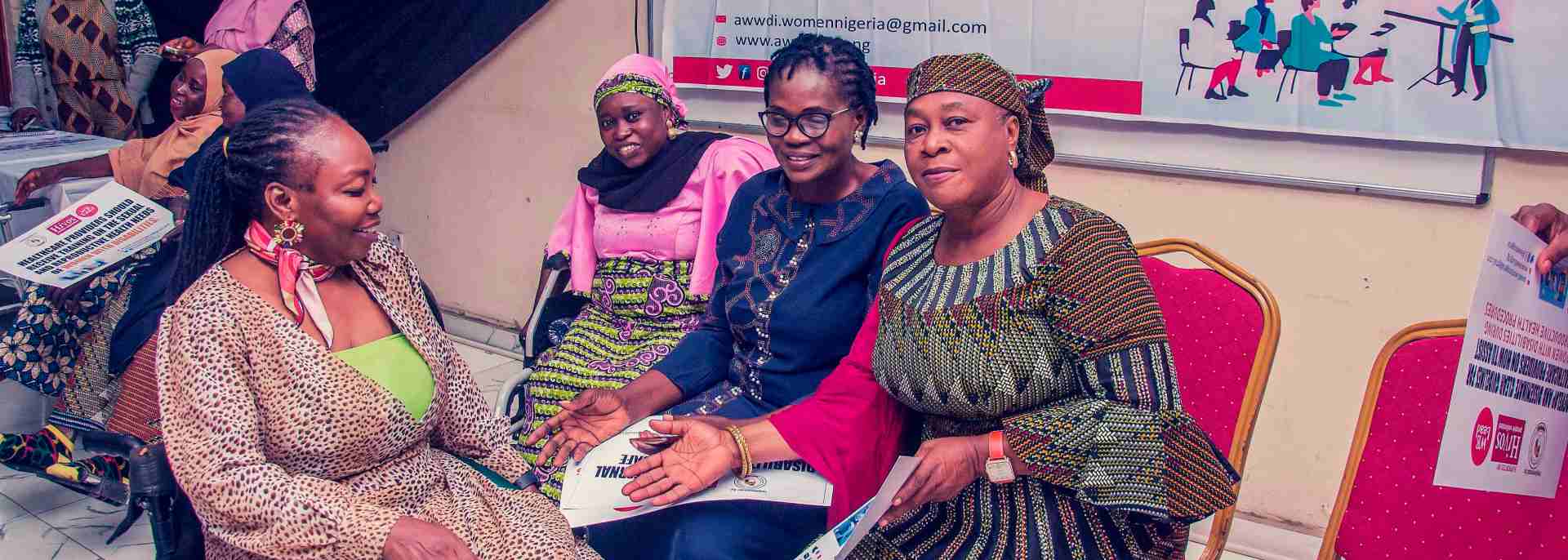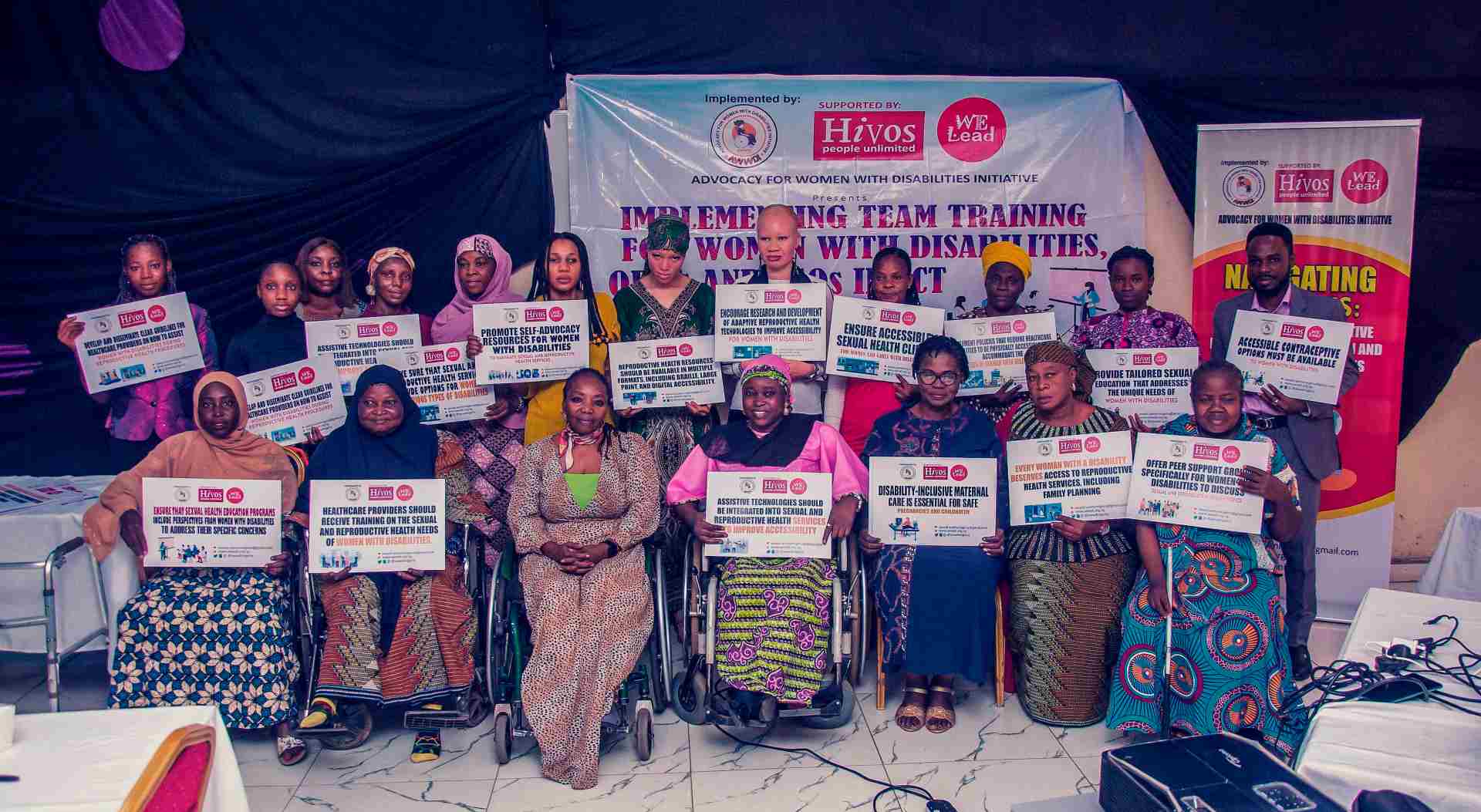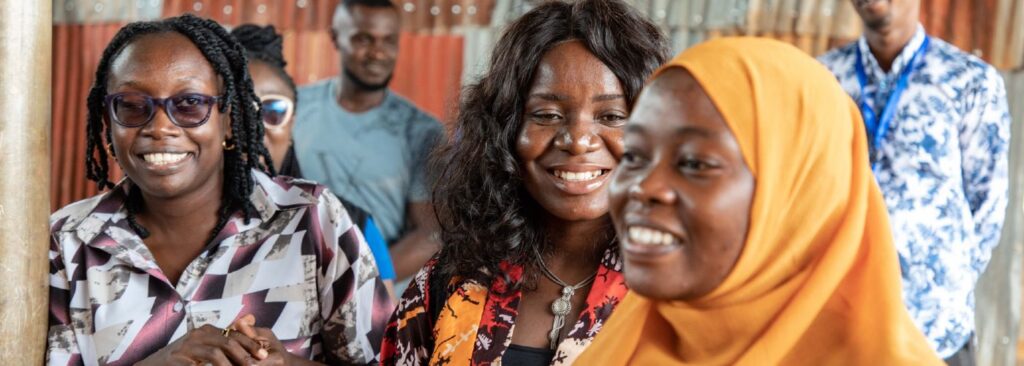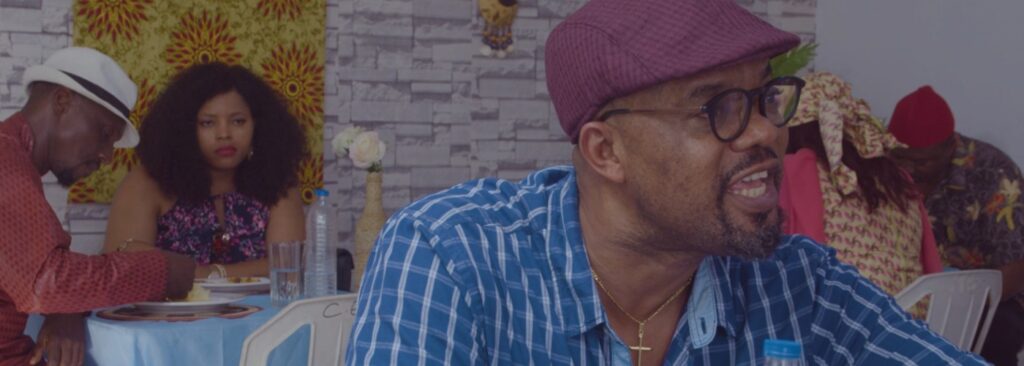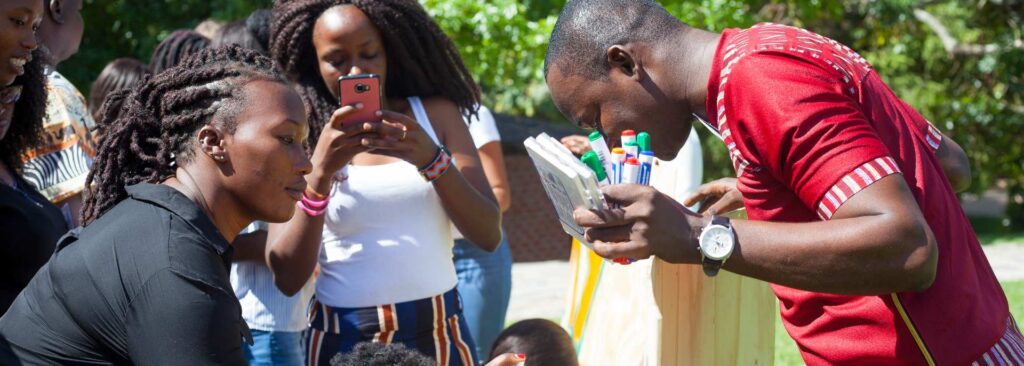The sexual and reproductive health and rights (SRHR) of women and girls with disabilities are crucial yet often overlooked. Around the world, young women and girls with disabilities have great difficulty accessing essential services and education that contribute to healthy lives and minimize risks of gender-based violence.
Nigerian women and girls with disabilities face major SRHR obstacles
In most parts of Nigeria, this marginalized population frequently encounters significant barriers to accessing their sexual and reproductive health rights. Obstacles include inaccessible health facilities, a shortage of sign language interpreters, and negative attitudes from healthcare providers. Young women and girls also lack bodily autonomy. Quite often, life-altering decisions regarding their sexuality and reproductive health are made for them by their families, judges, healthcare professionals, religious or cultural leaders.
Working with AWWDI to champion their rights
Our We Lead program has partnered with The Advocacy for Women with Disabilities Initiative (AWWDI), across Lagos, Ekiti, Edo Kogi FCT and Nasarawa States in Nigeria. Together, we champion the rights of women with disabilities, advocating for various groups — including visually impaired, hearing impaired, wheel chair users, albinism-affected young women and girls.
“Ensuring accessible prenatal and postnatal care for women with disabilities is not merely a right — it is an essential necessity. Let us strive to create an environment where every mother feels acknowledged, listened to, and well-supported.”
John Juliet, AWWDI
Through the project, AWWDI has made remarkable progress in overcoming these challenges. Their social media campaigns have reached over 265,562 people, raised awareness, and fostered understanding. Additionally, AWWDI has directly empowered 500 rights holders across the four states in Nigeria and has trained 50 healthcare providers to better meet the unique needs of women and girls with disabilities.
My involvement in the We Lead program, specifically focusing on the sexual and reproductive health rights of women and girls with disabilities, has been transformative. I’ve amplified my voice, advocated for inclusive services, built a supportive community, and developed leadership skills. Now, equipped with knowledge and resources, I empower others to assert their SRHR. Excited to continue this journey toward a more inclusive society!”
Roseline Migbole, a young woman with albinism
Working directly with over 50 stakeholders, including policymakers, disability organizations, civil society groups, and traditional leaders, AWWDI has achieved remarkable progress in empowering women and girls with disabilities to advocate for their sexual and reproductive health rights.
“Our efforts have empowered rights holders to view sexual and reproductive health services as their entitlement, not mere privileges. Through our advocacy, we’ve influenced national policy, collaborating with key stakeholders to safeguard the rights of women and girls with disabilities. We Lead’s impact is profound, driving lasting change toward equality and inclusion.”
John Juliet, AWWDI
The implementation of targeted initiatives has significantly enhanced the sexual and reproductive health rights of women and girls with disabilities in the four states. Prior to that, a considerable number of women with disabilities lacked comprehensive awareness of their reproductive health rights.
“Although I had a basic understanding of sexual and reproductive health rights, the We Lead program significantly enriched my knowledge of essential terminology and legal frameworks crucial for effective advocacy. It deepened my moral comprehension, clarified my rights, and honed my ability to articulate the needs of women with disabilities. Moreover, the project illuminated the intersectionality of SRHR requirements across diverse disability groups, empowering me to effectively train others.”
Yakubu Bilikisu, a young woman who uses a wheelchair
Enabling healthcare providers to better do their job
Additionally, healthcare providers faced challenges in addressing the specific needs of their patients with disabilities due to insufficient information. However, through the project’s efforts, 50 healthcare professionals across the four states have received specialized training. As a result, health facilities now offer improved accessibility and keep registers that help them diligently monitor visits by women and girls with disabilities.
“Now, healthcare professionals recognize the autonomy and rights of persons with disabilities, including their right to pregnancy and proper care. For example, a deaf woman, previously facing severe complications during delivery as a result of communication barriers, is now again a proud mother after receiving project support and access to a sign language interpreter.”
Wasiu Monsurate Fasasi, a deaf member of the disability community.
Forced sterilization: a practice we still have to fight hard against
The forced sterilization of women and young girls with disabilities is a deeply concerning problem that violates their fundamental human rights. Whether fueled by misconceptions, or the lack of reproductive health services for people with disabilities (PWDs), this practice continues to be an issue the program fiercely advocates against.
“In the past, we encountered distressing cases where young women with disabilities were forcibly sterilized to prevent them from having children. These harmful practices placed significant barriers on their reproductive rights. However, thanks to the We Lead project, we’ve been able to educate the public, parents, and families of PWDs. Our goal is to ensure that everyone — regardless of disability — has the right to give birth, experience love, and build their own family. Importantly, this program has dispelled the misconception that a child born to a PWD will inevitably inherit the same disability.”
John Juliet, AWWDI

